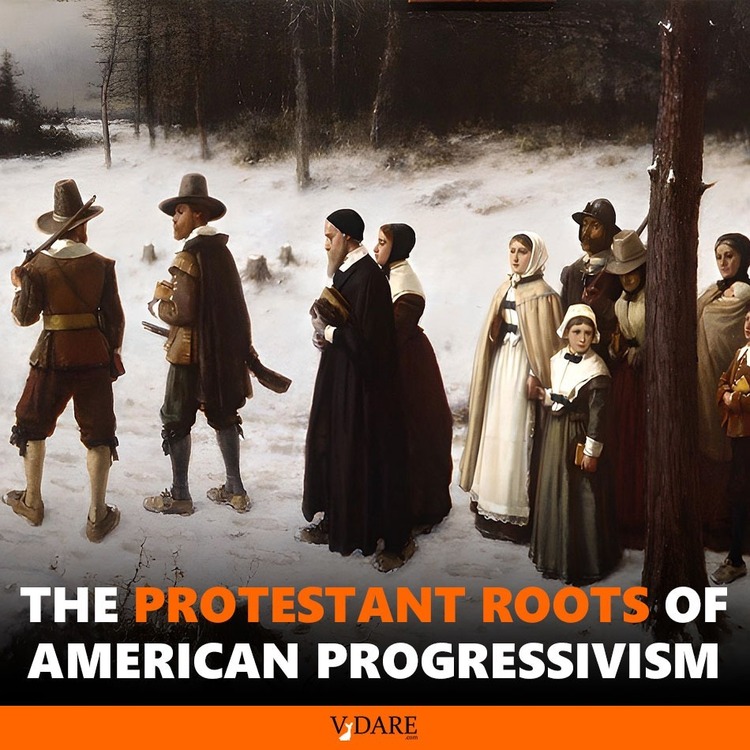
The Protestant Roots of American Progressivism
04/19/2024
It’s widely assumed, both by Jews and by anti-Semites, that the roots of American progressivism are heavily Jewish.
Yet Jews had relatively little impact on the crucial first century of the American republic, from the Declaration of Independence through the end of Reconstruction. Yet progressivism that is ideologically ancestral to contemporary “In this house we believe” wokeness was already ascendant during the second quarter of the 19th century in New England and its cultural satellites upstate New York, and northern Ohio, and triumphed nationally in the 1860s, if only briefly, from say 1862-1868.
For example, one of the first incidents in which I became aware of the Great Awokening was during the winter of 2013, when students at traditionally Leftist Oberlin College in northern Ohio had one of their freakouts over the KKK running amok on campus (it turned out, evidently, to be a lady, perhaps homeless, walking around on a cold night with a white blanket draped around her).
Oberlin was founded in 1833. Oberlin was not always exactly like it is today, but it always had tendencies in that direction.
The Leftist ideological center of America in the first half of the 19th century was of course Boston, which had few Jews at the time.
Although small numbers of Sephardic Jews passed through Boston in the colonial era, the city had no significant Jewish presence until the mid-nineteenth century. In the 1840s and 1850s, Jews from Poland and Germany began arriving, coming especially from the Prussian-ruled provinces of Posen and Pomerania. Fleeing economic deprivation and religious persecution, the new Jewish arrivals to the city numbered about a thousand on the eve of the Civil War.
In contrast, the Rightist ideological center of America during this era was Charleston, South Carolina, base of John C. Calhoun and the fire-eaters who launched secession in 1860. Charleston was known as the Jewish capital of America during the Sephardic era up through about 1830.
The first two Jewish U.S. Senators were Southern slave-owning Confederates.
Here’s Wikipedia’s list of 19th century American Jews: it’s full of worthy individuals, but few are exactly pivotal figures in American history.
In the middle of the 19th century began a small but talented influx of German Ashkenazis. And then in the 1880s began a huge influx of Eastern European Ashkenazis. Hence, the second century of the American republic would be vastly more influenced by Jews than the first century.
But the roots of American left of center ideology are distinctly Protestant, obviously going back to the Puritan side of the English Civil War of the 1640s. Yet, fewer and fewer seem to remember this.
I think part of the problem is that American Protestants are losing interest in their history. For example, I own the 1971 Encyclopedia Britannica, and it contains an amazing number of articles about now-forgotten American Protestant ministers, almost all of whom strike me as boring, in part because almost nobody ever brings these worthies up anymore in intellectual discourse. The Atlantic Monthly, for instance, used to try to figure out occasionally how to work mention of, say, Henry Ward Beecher or Thomas Wentworth Higginson into an article denouncing Ronald Reagan or Newt Gingrich, but not anymore.
In contrast, Jewish intellectuals remain relatively fascinated by their predecessors for healthy ethnocentric reasons. Thus, Emma Lazarus, a relatively minor figure in her own time, is now treated as a de facto Founding Father.
And anti-Semites find it more interesting to read contemporary Jews writing about old Jews than to read old Protestants whom nobody writes about anymore. So, anti-Semites, like Jews, overestimate the Jewish role in whatever it is they are against (or for) in America.
